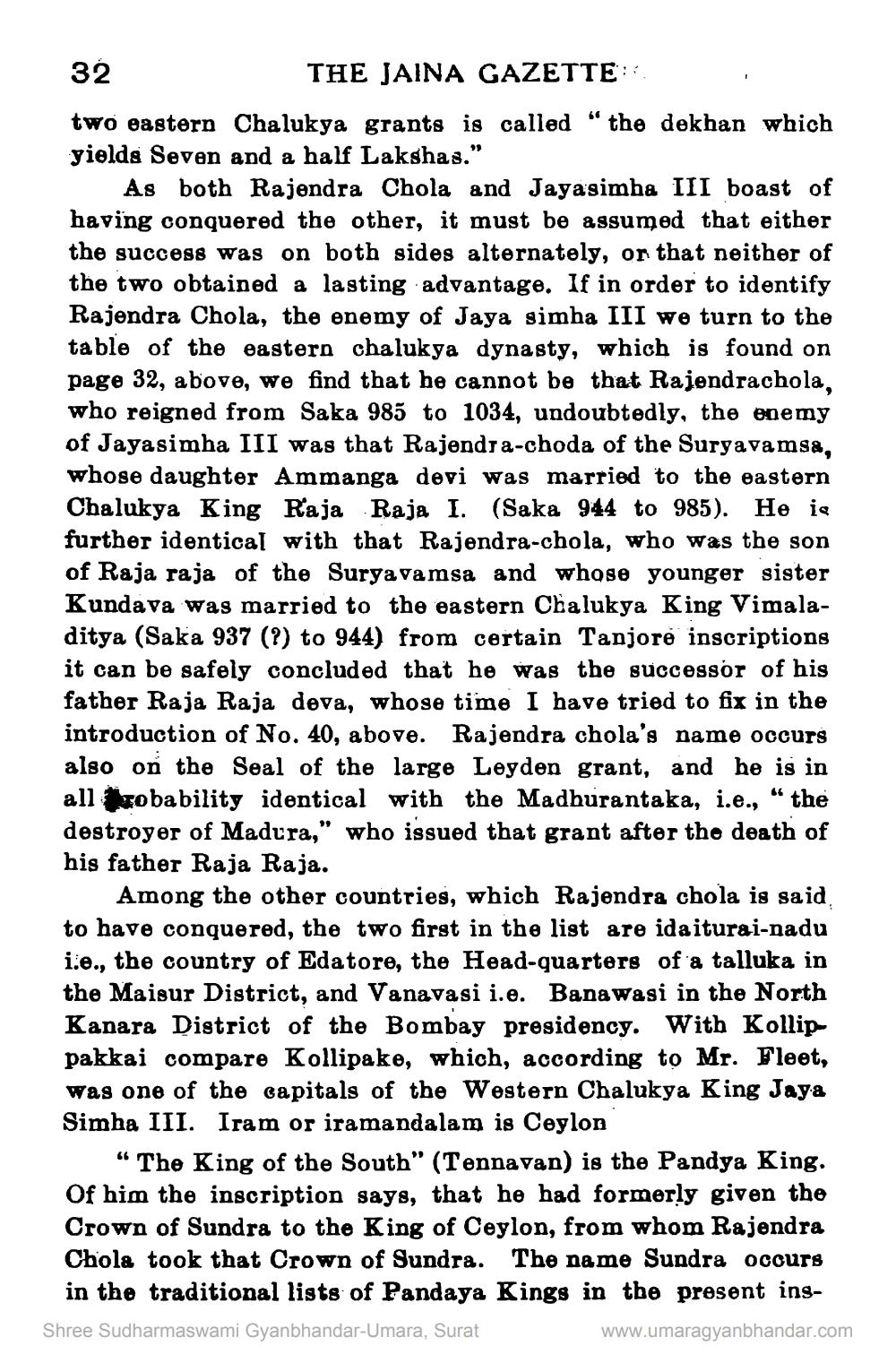________________
32
THE JAINA GAZETTE: two eastern Chalukya grants is called “the dekhan which yields Seven and a half Lakshas."
As both Rajendra Chola and Jayasimha III boast of having conquered the other, it must be assumed that either the success was on both sides alternately, or that neither of the two obtained a lasting advantage. If in order to identify Rajendra Chola, the enemy of Jaya simba III we turn to the table of the eastern chalukya dynasty, which is found on page 32, above, we find that he cannot be that Rajendrachola, who reigned from Saka 985 to 1034, undoubtedly, the enemy of Jayasimba III was that Rajendra-choda of the Suryavamsa, whose daughter Ammanga devi was married to the eastern Chalukya King Raja Raja I. (Saka 944 to 985). He is further identical with that Rajendra-chola, who was the son of Raja raja of the Surya vamsa and whose younger sister Kundava was married to the eastern Chalukya King Vimaladitya (Saka 937 (?) to 944) from certain Tanjore inscriptions it can be safely concluded that he was the successor of his father Raja Raja dova, whose time I have tried to fix in the introduction of No. 40, above. Rajendra chola's name occurs also on the Seal of the large Leyden grant, and he is in all obability identical with the Madhurantaka, i.e., “the destroyer of Madura," who issued that grant after the death of his father Raja Raja.
Among the other countries, which Rajendra chola is said to have conquered, the two first in the list are idaiturai-nadu i.e., the country of Edatore, the Head-quarters of a talluka in the Maisur District, and Vanavasi i.e. Banawasi in the North Kanara District of the Bombay presidency. With Kollip pakkai compare Kollipake, which, according to Mr. Fleet, was one of the capitals of the Western Chalukya King Jaya Simba III. Iram or iramandalam is Ceylon
"The King of the South" (Tennavan) is the Pandya King. Of him the inscription says, that he had formerly given the Crown of Sundra to the King of Ceylon, from whom Rajendra Chola took that Crown of Sundra. The name Sundra occurs
in the traditional lists of Pandaya Kings in the present insShree Sudharmaswami Gyanbhandar-Umara, Surat
www.umaragyanbhandar.com




